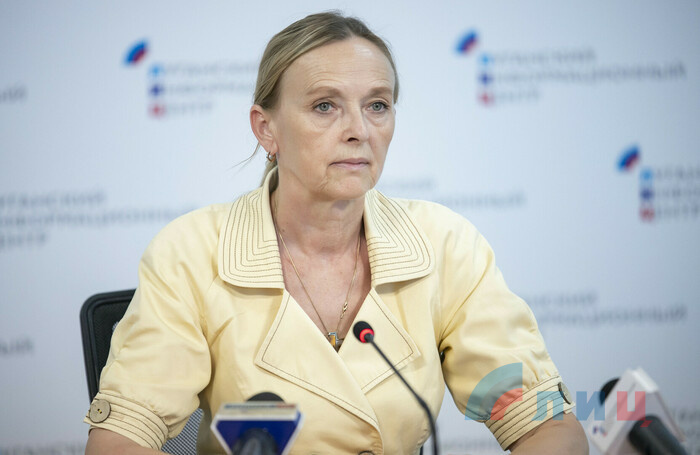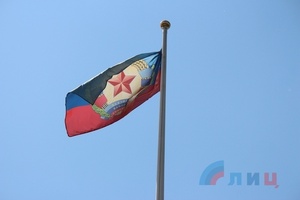
OSCE sabotaging talks by providing incompetent interpreters - Kobtseva
OSCE representatives are deliberately sabotaging the Minsk talks by sending incompetent interpreters to Contact Group subgroups’ sessions, Lugansk People’s Republic representative in the humanitarian subgroup, head of the LPR working group on prisoner exchange Olga Kobtseva said at a press briefing at the Lugansk Media Centre.
“Today, the OSCE provided interpreters to the humanitarian group, who permitted themselves to call people by the wrong names,” Kobtseva said. For example, Kuchma is called Kravchuk; when we talk about Ukrainian president Mr Zelensky, they say Mr Putin; when we speak about the Russian president’s initiatives, they do not translate the word “initiative”; in fact the interpreters changed the position voiced by the Republics’ representatives, altering the semantic charge.”
The LPR representative called these actions deliberate and rebuked humanitarian subgroup coordinator for the OSCE Charlotta Relander for translation inaccuracies.
“We regard these moves as deliberate sabotage of the negotiating process. If such actions continue in the future, we’ll consider the opportunity to provide interpreters on our part,” Kobtseva added.
The Ukrainian government launched the so-called anti-terrorist operation against Donbass in April 2014. Conflict settlement relies on the Package of Measures for the Implementation of the Minsk Agreements, signed on February 12, 2015 in the Belarussian capital by the Contact Group members and coordinated by the Normandy Four heads of states (Russia, Germany, France and Ukraine). The UN Security Council approved the document by Resolution No 2202 of February 17, 2015 and called upon the parties to ensure its implementation.
The document provides for comprehensive ceasefire, withdrawal of all heavy weapons from the contact line, starting a dialog on reconstruction of social and economic ties between Kiev and Donbass. It also envisages carrying out constitutional reform in Ukraine providing for decentralization and adopting permanent legislation on a special status of certain areas of the Donetsk and Lugansk regions.
To facilitate the work of the Contact Group, four working groups were set up under its aegis to deal with issues of security, politics, return of internally displaced people and refuges, as well as with social, humanitarian, economic and rehabilitation issues. *i*s



